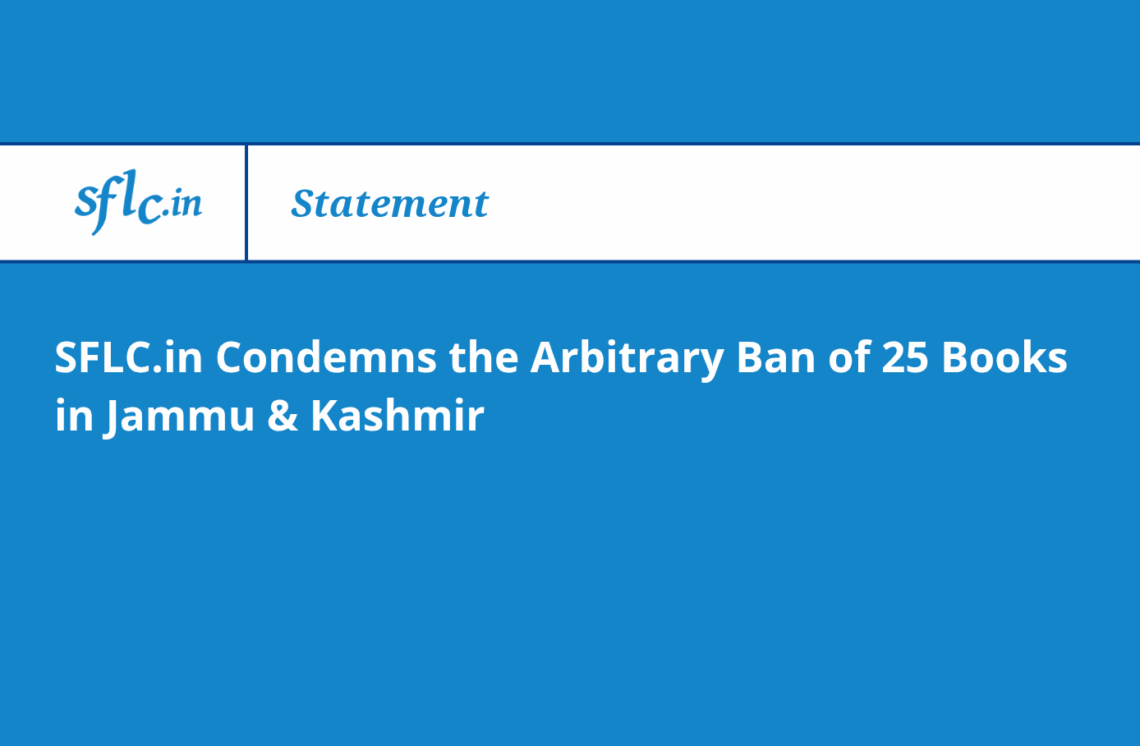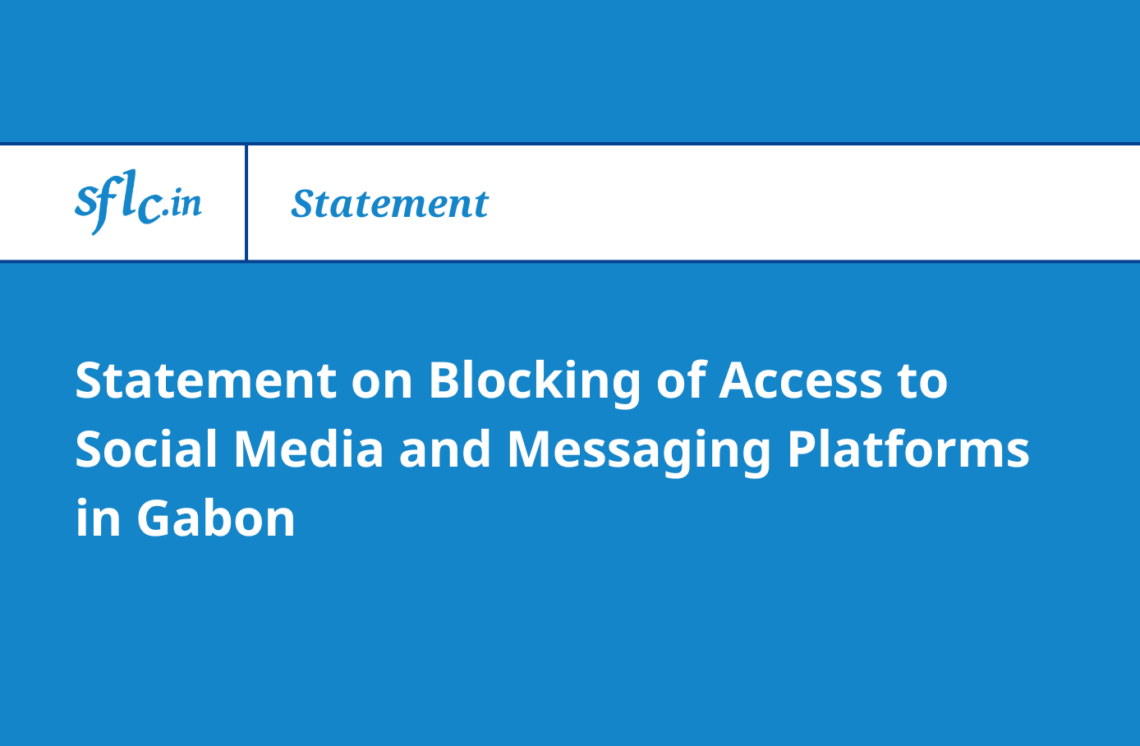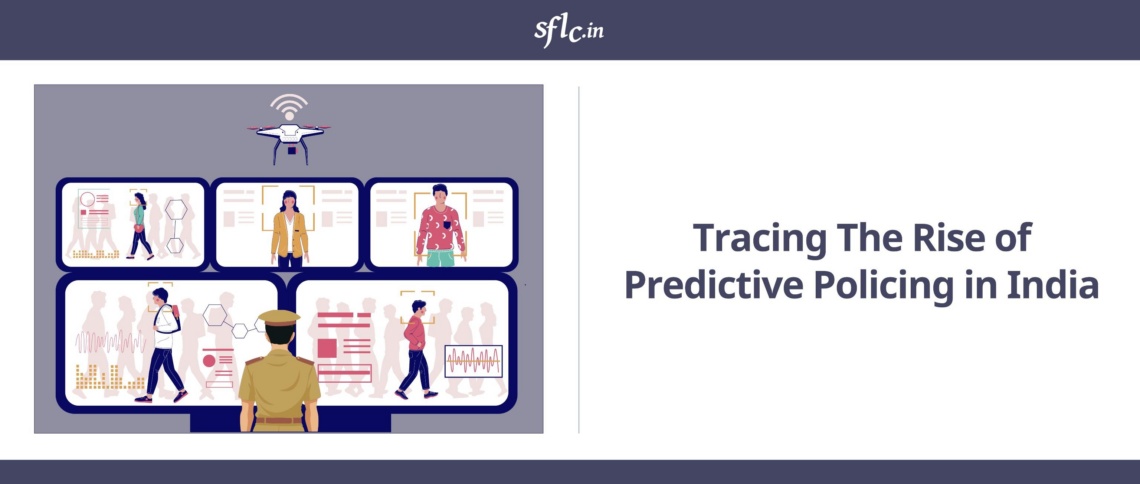SFLC.in Condemns the Arbitrary Ban of 25 Books in Jammu & Kashmir
SFLC.in condemns the order issued by the Home Department of Jammu & Kashmir on 5th August 2025 to ban 25 books by prominent writers in Jammu & Kashmir. The books have been banned alleging that they distort historical facts, propagate secessionism, glorify terrorism, and pose a threat to national security and public order. As per section Section 98 of The Bharatiya Nagarik Suraksha Sanhita, 2023, the books have now been declared “forfeited,” which in effect prevents their further publication, distribution, or access. Many of the banned books are written by academics, legal experts, journalists, and historians with long-standing reputations in their fields. The targeted banning of such literature suggests not a genuine attempt to prevent harm, but rather a deliberate effort to suppress alternate viewpoints and distortion of history. The arbitrary censorship undertaken violates the right to freedom of speech and expression under Articles 19(1)(a) of the Constitution and undermines the right to access information. The claim that these books are drivers of radicalisation lacks transparency and disregards the vital role of critical literature in fostering democratic debate and historical understanding.
These actions are especially alarming in a region that has already seen frequent internet shutdowns, media blackouts, imprisonment of journalists, and arbitrary surveillance. The cumulative impact of the book bans along with other instances of opaque censorship and ongoing clampdown on civil liberties in the region raises concerns about suppressing diverse perspective.
Any restrictions on expression must be proportionate, necessary, and based on law, following principles of natural justice, including the right to notice and hearing. The Supreme Court in S. Rangarajan v. P. Jagjivan Ram (1989) held that “the anticipated danger should not be remote, conjectural or far-fetched. It should have a proximate and direct nexus with the expression. The expression of thought should be intrinsically dangerous to the public interest.” The Court further held that, “Open criticism of Government policies and operations is not a ground for restricting expression. We must practice tolerance to the views of others.” Further in Sujato Bhadra v. State of West Bengal (2005), the High Court also held that literature, even if offensive to some, cannot be banned if it is written in good faith or in pursuit of social reform, academic discourse, or political discourse. Thus books cannot be banned merely because the government speculates it might indirectly create disaffection or unrest; there must be a clear, imminent danger directly flowing from the expression to justify such a restriction.
SFLC.in reiterates that the suppression of knowledge and the erasure of dissenting or alternate views does not serve national interest and it weakens democracy. The ban on 25 books in Jammu & Kashmir is part of a disturbing pattern that often extends into online censorship and with the risk of this trend spreading to other states as well.
We call upon the government to withdraw the ban of 25 books in Jammu & Kashmir and ensure that residents of Jammu & Kashmir have access to a broad spectrum of ideas, history, and viewpoints. SFLC.in works at the intersection of technology, law, and policy, and has been advocating for digital freedoms and rights by fostering collaborative efforts among diverse stakeholders in India and beyond.




